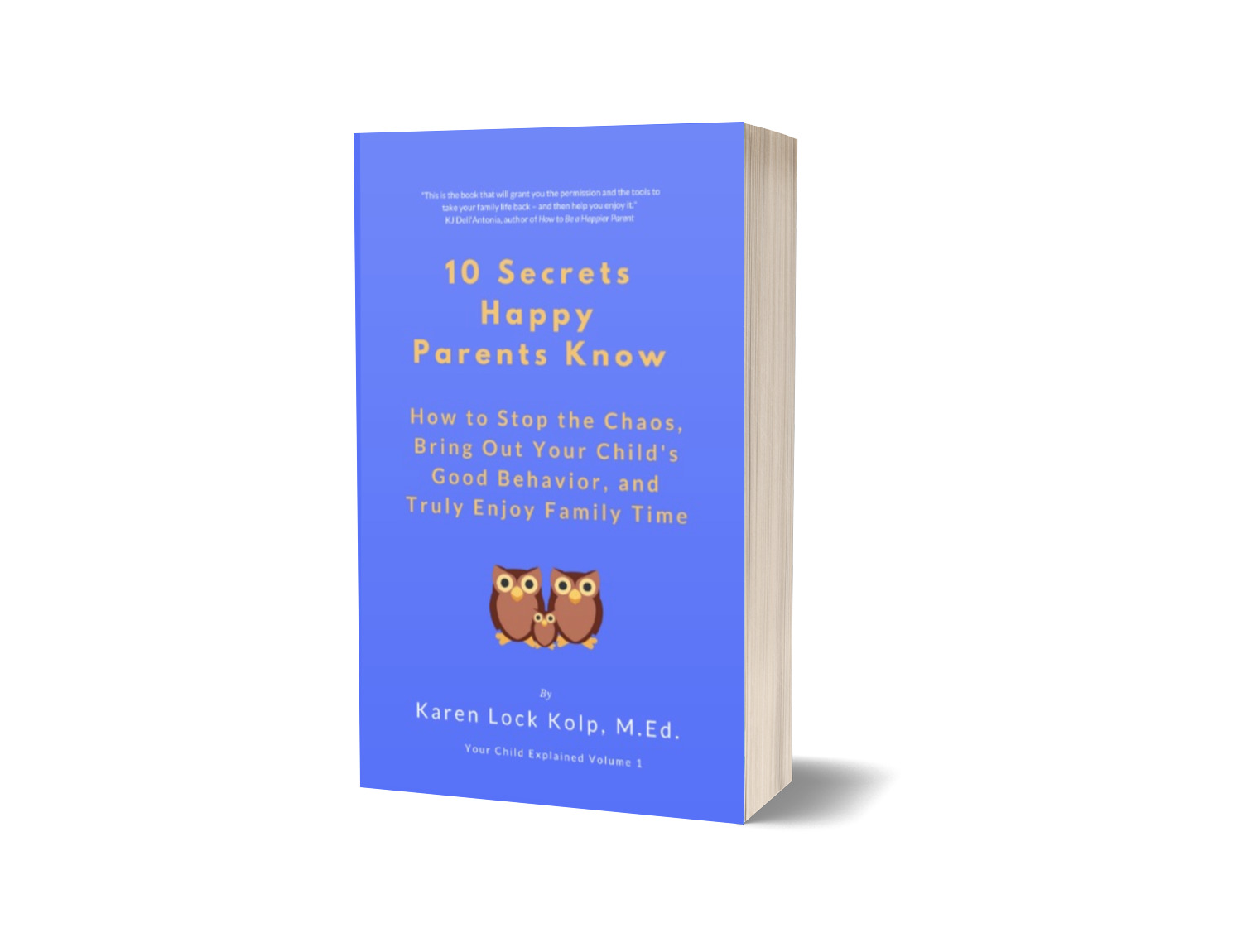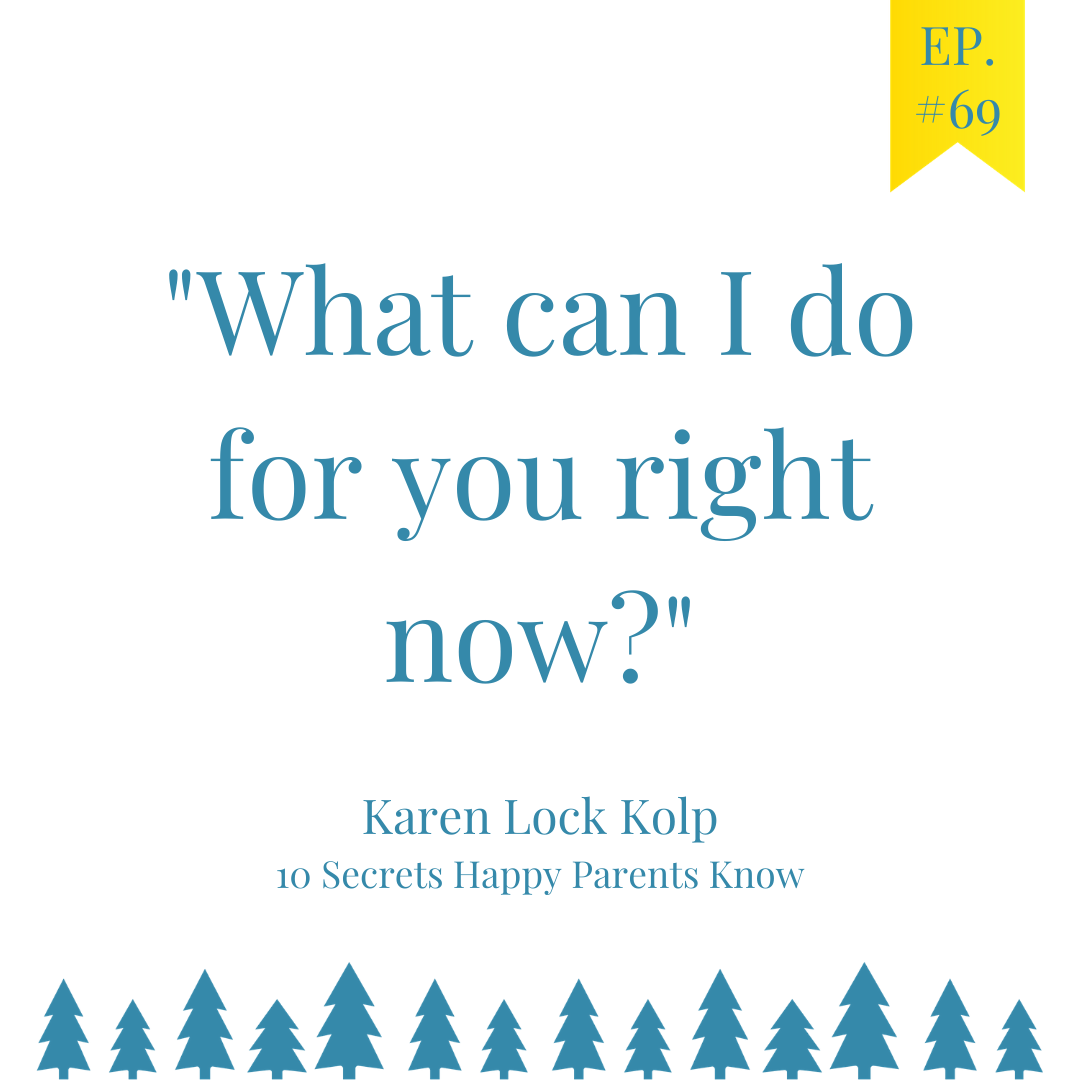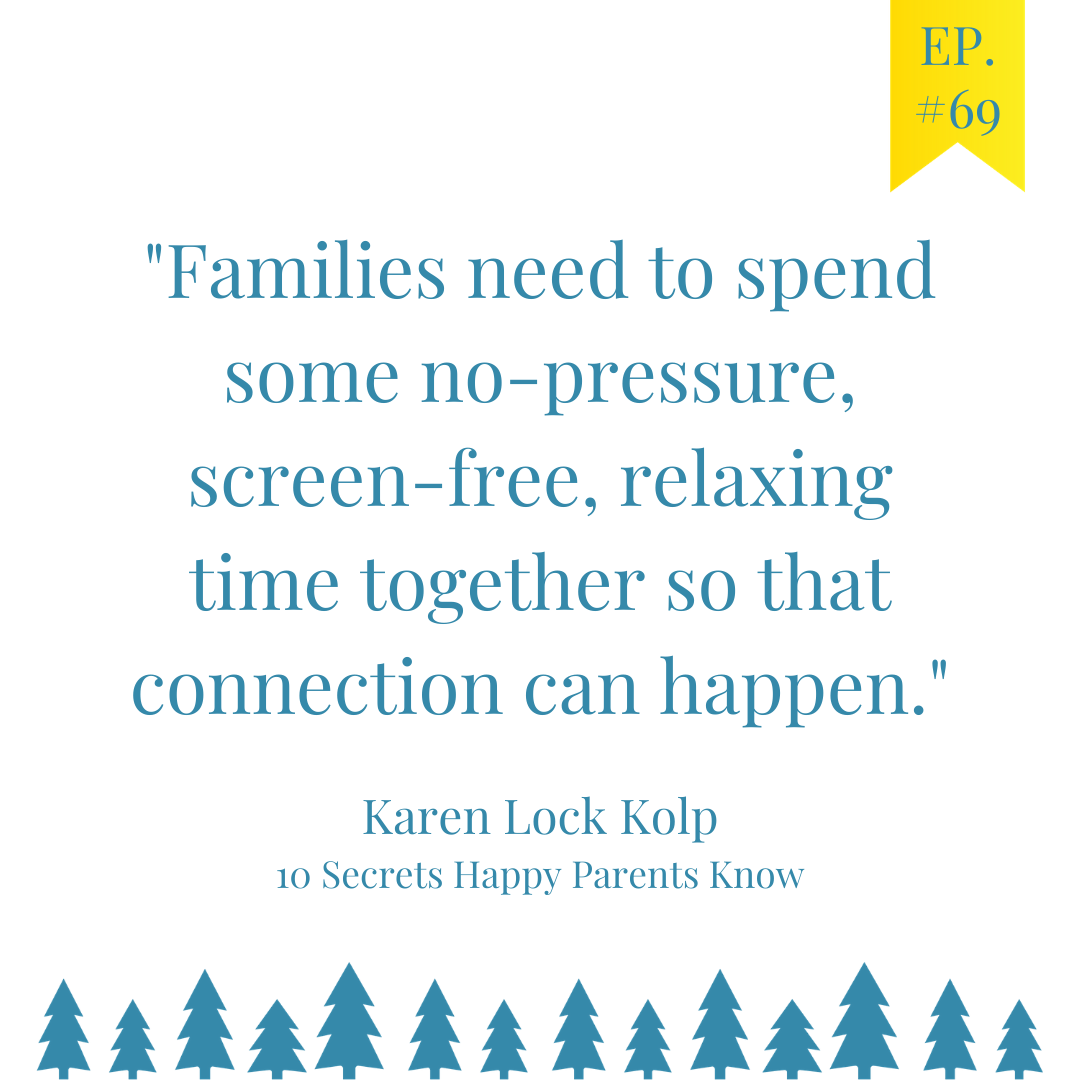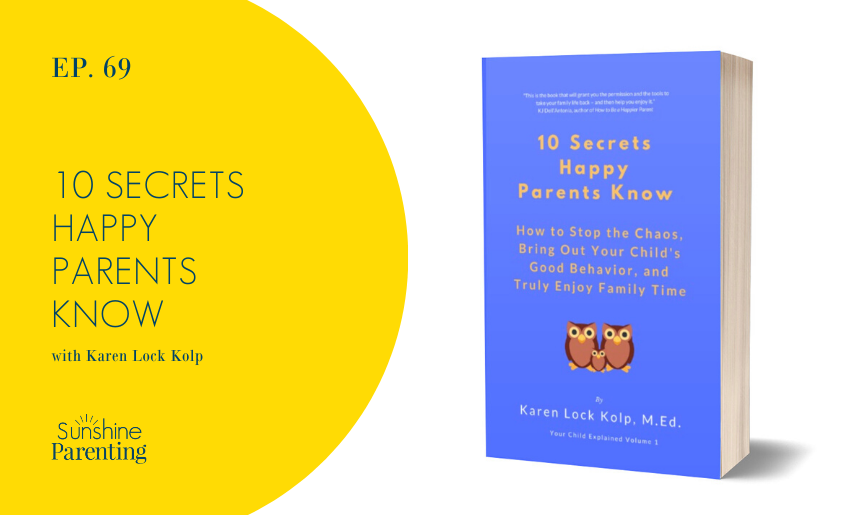In Episode 69, I’m chatting with Karen Lock Kolp of the We Turned Out Okay website and podcast. We talked for the first time back in Episode 38: We Turned Out Okay with Karen Lock Kolp.
Karen is an early childhood development expert and parent coach. On her website and podcast, Karen helps worried and hovering parents by bringing reassuring, helpful advice and conversations. Her new book, 10 Secrets Happy Parents Know: How to Stop the Chaos, Bring Out Your Child’s Good Behavior, and Truly Enjoy Family Time.
The Amazon description of 10 Secrets says:
“Often parents feel so lost. We want to say and do the right things in the moment to connect with our young children, but sometimes we can’t even get them to just listen, and respect us.
10 Secrets Happy Parents Know helps with that, and more.

Big Ideas
Drawing on her vast knowledge of child development, her many interactions with coaching clients and participants in her Ninja Parenting online community, and her own experience raising two boys, Karen developed her book, 10 Secrets Happy Parents Know.
The book is comprised of two parts:
- Finding the good behavior within your child.
- Truly enjoying Family Time.
Karen highlights some of the “Secrets” found in her book:
- Secret #1: Communication cuts through chaos! For some families, she suggests spending 10 minutes a day together, screen-free. This relaxed family time together can be the key to connection.
- Secret #3: Words Matter. Karen shares Magic Words in her book and online in a weekly post to her Facebook parenting group. They are productive, helpful phrases or single words to use in the moment so that you maintain connection with your child. Using Magic Words can help parents to avoid saying something in frustration that they may regret later.
- A Magic Words example: When you want your child to know that you love them you can say, “What can I do for you right now?” You’ll be surprised by the responses you might get. You may be asked to watch their video game or even just to give them a hug.
- Secret #8: You’re only preliterate once. Children’s academic and developmental progress shouldn’t be rushed. Help them when they ask for it. Appreciate and respect each child’s individual journey.
- Secret #9: Celebrate every day. The holidays can be so stressful for families. Karen suggests celebrating every day as a way to mitigate the pressures of celebrating special occasions. Kids can find something joyful in every day and that is something parents can learn from their kids.
 Quotes
Quotes
Audrey: “It’s a huge gift when someone just listens and isn’t distracted while they’re talking to us. Giving kids your full attention – even if it’s just a few minutes a day – can be so valuable. Many times, kids act out because they are just trying to get our attention, to share something with us.”
Karen: “A lot of times what parents have trouble with is knowing the right thing to say in the moment. How do you not lose it? Or say something that you’ll regret? The ‘magic words for parents’ is all about that.”
Karen: “Magic words work. They really work. This is what I keep hearing from people. They have to be specific, but there is a sort of formula to it. The first thing you should do is validate their concern by saying something like, ‘Wow, that sounds really hard for you’ and it isn’t telling your children what to do.”

Karen: “Wherever your child is in their development, whether it is true pre-literacy, like if they are actually pre-verbal, or if they are teenagers and they just don’t have the life lessons yet that you want them to have, I think this idea really carries through because it’s more about them being able to look around and be curious about things, and celebrate the every day. Understand that where they are is a really good place to be.”
Karen: “No matter what age, letting them be “pre-literate” – whatever that means to them – and letting those questions bubble up for them. Then when they ask, ‘What do I do? How do I start?’ That’s when you can help them along. You are there to help them look for resources.”
Audrey: “When kids are young, it’s easy to become fixated on milestones or various stages of development, like potty-training or learning to read. It is helpful to have friends in your community whose kids are different ages and a few years older. Listening to their perspectives can help calm nerves of first-time parents. With a wider view of their growth, you are more relaxed, accepting their path, whatever it is, and more likely to enjoy the journey.”
Audrey: “What kids remember from their childhood is more often the day to day, simple things that families can do together. Small, simple traditions often make the biggest impact. It doesn’t have to be big and fancy to be memorable.”
Resources/Related
- Ep. 38: We Turned Out Okay with Karen Lock Kolp
- Ep. 22: Jedi Mom Tricks with Maria Horner (Part 1)
- Ep. 33: Jedi Mom Tricks (Part 2)
- Ep. 42: Jedi Mom Tricks (Part 3)
- If you liked this episode, you might want to read my post, Giving Kids Our Full Attention.
- Listen to Karen’s We Turned Out Okay podcast interview with me, Give Your Child The Magic of Summer, episode 224.
Links
- Follow Karen Lock Kolp:
- Website: https://weturnedoutokay.com
- FB and twitter: @weturnedoutokay
- Learn more about the (NPC) Ninja Parenting Community.
- Join the We Turned Out Okay Facebook group, where each Monday morning Karen shares Magic words for parents.
- She is also available to work privately with families in the Boston, Massachusetts area.


